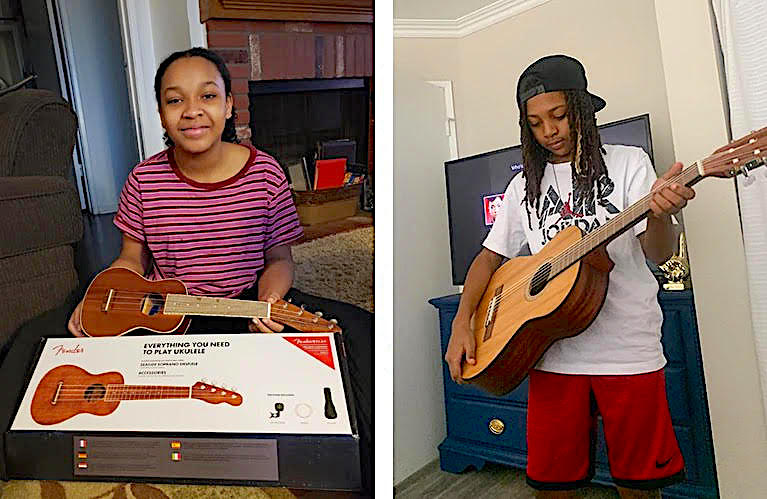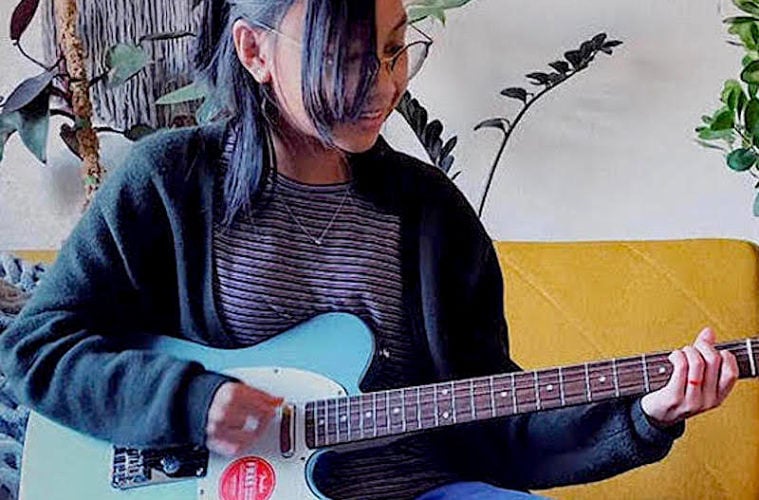Back in November, the passing of Proposition 28 increased funding for arts and music education in California public schools annually, a change that will surely have immeasurable impact on a new generation. Music is one of the most powerful forms of expression there is, and according to a new USC study, it can play a part in improving mental health, especially in young people. The university’s Thornton School of Music recently published an examination of music education based on a pool of students participating in programs run by the Fender Play Foundation (FPF)– a program created to inspire, equip and educate youth.
Last month, USC researchers released details from its peer-reviewed study highlighting the benefits of programs such as FPF on well-being. The results revealed that music in schools makes young people happier and healthier. It also revealed that there are significant age and gender-based differences in terms of music creation, both with in-school music programs and outside of school, and that there is a diversity of musical preferences as well. It’s heartening to know that 20% of surveyed responses were related to artists and bands from the 1990s or earlier, suggesting that today’s kids might like modern pop and hip hop, but that classic rock and R&B inspires musical interest as well. Tailoring programs to music tastes means more engagement and more enthusiasm, even if adolescents don’t choose music as a career path.
During the height of the pandemic, the Fender Play Foundation partnered with Los Angeles Unified School District (LAUSD) to offer programs that tap into Gen Z’s musical interests, including a Virtual Middle School Music Enrichment program, which the company says, has impacted upwards of 15,000 students. Our own teen gave the Fender Play program a try, and it opened up the doors of discovery– she’s now pursuing vocal performance, as well as writing about music in her own zine.
“Since June 2020, we’ve offered a tuition-free, extracurricular virtual program on a semester basis for any LAUSD middle school student to learn guitar, bass, or ukulele,” says Aarash Darroodi, EVP, General Counsel and President Fender Play Foundation. “This Fall, we gifted instruments to provide hundreds of students enrolled in LAUSD Virtual Academies access to music education. “
The online music learning app isn’t just for students, either. Designed to get people playing an instrument in minutes using a guided learning experience, it utilizes short videos to walk players of any age through the playing process step-by-step, teaching fundamental skills, chords, theory and techniques.
“The underlying assumption is that players are initially inspired by the songs they hear and want to learn, but what keeps them engaged is the feeling of accomplishment that comes from making progress quickly,” says Darroodi. “For people who feel intimidated by learning guitar, Fender Play uses micro-learning to break up large skills into ‘bite-sized’ achievable steps that reinforce one another and produce results, from the first step, learning how to hold and tune the instrument, all the way through playing songs at an intermediate beginning level.”

(Courtesy Fender Play Foundation)
Focused on what works best for learning, Darroodi says FP’s methods are comprised of “psychomotor and complex cognitive tasks and draw from research in biomechanics, expert learning theory, habit-building, and persistence.”
Everyone from Billie Eilish to Jason Mamoa has lent their time to support these projects. Eilish even fostered her own ukulele program (she has a signature uke with the brand) as part of the FPF, focused in Highland Park, where she and her brother grew up. Students can access Fender Play for free as part of the program and they get to keep their instruments when they complete the program.
Fender also partnered with Sony Music Group (SMG) and the non-profit organization Notes for Notes® to expand “Beyond The Instrument,” another initiative providing instruments, workshops, activations, and mentoring artists. Ahead of the recent GRAMMY Awards – the program launched at the Boys & Girls Club of Metro Los Angeles – Watts-Willowbrook Clubhouse. Notes for Notes® opened its largest recording studio at the clubhouse, offering club members year-round free access to guitars, drums, keys/synths, DJ and production gear, as well as headphones and microphones donated by Sony and time with producers, engineers and film/TV composers.
“This program model offers many innovations that will shape the future of music education across the state, nation, and world,” asserts Darroodi. “In addition to increasing access to musical instruments, the Fender Play Foundation has distributed the Fender Play app as an incredibly helpful tool for teachers and students. We have all witnessed the powerful roles the arts play in people’s lives—as a means to cope with loss, discover a sense of meaning and belonging, and as a way to experience joy. We have also seen how the arts move us to empathize with others, challenge us with different points of view, and play a unifying role in social movements. Take the devastating effects of the pandemic on the well-being of children as an example: As we look toward the long process of recovery, we can be confident that arts education will facilitate emotional well-being, reconnect students with friends and teachers, and foster resiliency. “
More info on how Fender Play Foundation is impacting Los Angeles students HERE.
Editor’s note: The disclaimer below refers to advertising posts and does not apply to this or any other editorial stories. LA Weekly editorial does not and will not sell content.
Advertising disclosure: We may receive compensation for some of the links in our stories. Thank you for supporting LA Weekly and our advertisers.

